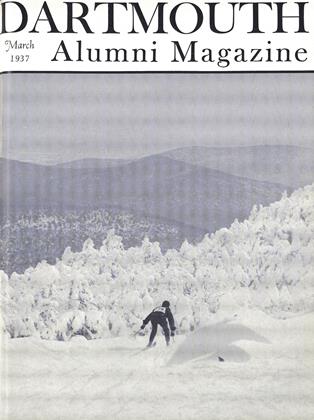TOO SPIRITUALLY dim to reach his inmost being, I can at least kneel and drink with you from the bubbling fountain of life within him from which so many men, women and children have quenched their thirst.
Of him certainly we can say with careful measure of our words: He was a Christian gentleman. That is the highest epithet I know. He moved through this sacred world with open eyes, with uncovered head, with his body inclined always for graceful service. Someone has said that die Buddhist saint moves through life with his eyes closed, drawing upon his own soul for his visions, while the Christian saint seeks his illumination from the laws, the beauty and the persons of God's world. Bartlett loved the Buddhists among whom he spent so large a portion of his life and he never denied their soft and mellow light, but he was a Christian and lived in the sunlight, where he had found his highest revelation.
As his supreme experience came from his contact with a Person, he carried over his reverence for Him to us all. What to me distinguishes Bartlett from many another noble emissary of Christ is his delighted awareness of the sacredness of personality. Like his Master, he had both Nicodemuses and Mary Magdalens as friends. He numbered among those whom he loved the best ambassadors and outcasts. He treated them with the same kingly courtesy which he extended to us all. He never forced the door of a personality; he knocked often—very often at some doors— that he might come in and sup with us and we with him.
He believed in truth perhaps more obviously and constantly and sometimes irritatingly than any one I have known intimately. Truth had for him a wide domain. Flowers were a particularly alluring portion of it—not only the colors they flaunted so gaily but their roots and the systems and the chemistry which produced them. He loved arbutus as only a New Englander can, but he also was curious about it and experimented in producing it. Everything that really is was to him worthy of study, of brooding over. Facts, systems, methods of growth were to him holy matters. So supremely were persons. Each must find his own way, but he must find it, seeing that he was made for that purpose, and the way must be in harmony with the world in which he stood.
Yet he had his own strong convictions; he believed in the Christian way, the more so, the more he contrasted it with other ways; the contrast kept underscoring its essentials and cutting away its excrescences. On the corners of the streets, in remote and beloved Tottori, ninety miles from the railroad, in many a preaching tour through scattered villages, latterly again in the Doshisa University at Kyoto, where for five consecutive hours he would lay bare the principles of Christian ethics before commercial students, he worked beyond his strength. His legs were known as the fastest in his region, as I dare say, his mind was also. But his work was never a bom- bardment; it was rather an irrigation. His weapon was love and love was impossible save between two persons, equally to be reverenced, equally bound to be true to the spirit within as reflecting the Spirit without, above, underneath.
She who knows and loves him best says that over any memorial tablet to him should be carved: "The common people heard him gladly." Which, I think, means that he was primarily a gentleman. Because he possessed both family and learning, he did not overestimate them. "Noblesse oblige," I believe he preferred discovering glittering virtues enclosed in a forbidding mass of rock than when properly polished and set out in well-guarded and widely advertised show-cases. His father was a battling champion of the old orthodoxy; he never reviled it nor did he depart from its enduring strength but he loved to throw the shield of his more assured faith and his deeper consecration around us more wobbly ones and defend us against the assaults of the suspicious. I have always imagined that he became a missionary because of his natural reverence for the unreverenced, because he shared his Master's predilection for those who lived in the highways and hedges, because he wanted to give to them the invitation for the feast which he knew had been spread for them. His career has justified his faith. Throughout Japan, choice souls rise up and call him blessed.
Man with his burning soul Has but an hour of breath To build a ship of truth In which his soul may sail- Sail, on the sea of death, For death takes toll Of beauty, courage, youth, Of all but truth.
 View Full Issue
View Full Issue
More From This Issue
-
 Article
ArticleYANKEE INGENUITY HAS NOT ENTIRELY DISAPPEARED, A TALE OF "AUSTIN'S ANTS" AND THEIR ANTICS
March 1937 By JOHN HURD JR. '21 -
 Class Notes
Class NotesClass of 1930
March 1937 By Albert I. Dickerson -
 Class Notes
Class NotesClass of 1926
March 1937 By Charles S. Bishop -
 Class Notes
Class NotesClass of 1936
March 1937 By Richard F. Treadway -
 Class Notes
Class NotesClass of 1911
March 1937 By Nathaniel G. Burleigh -
 Article
ArticleHanover Browsing
March 1937 By HERBERT F. WEST '22







